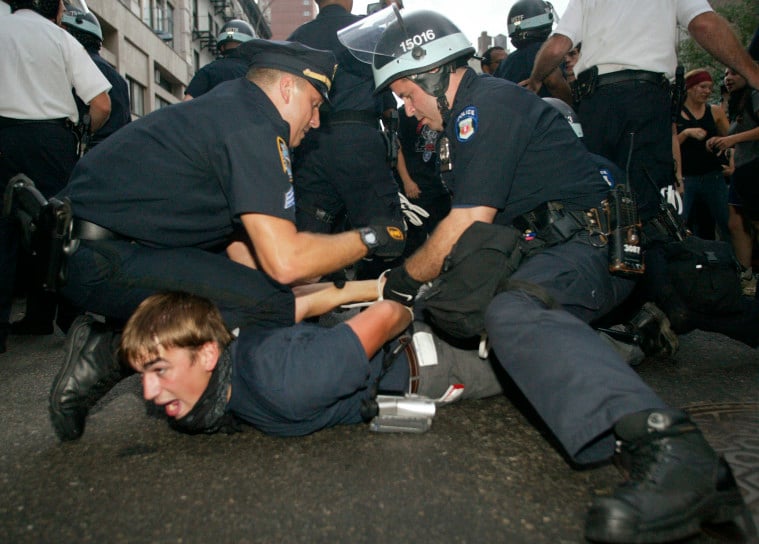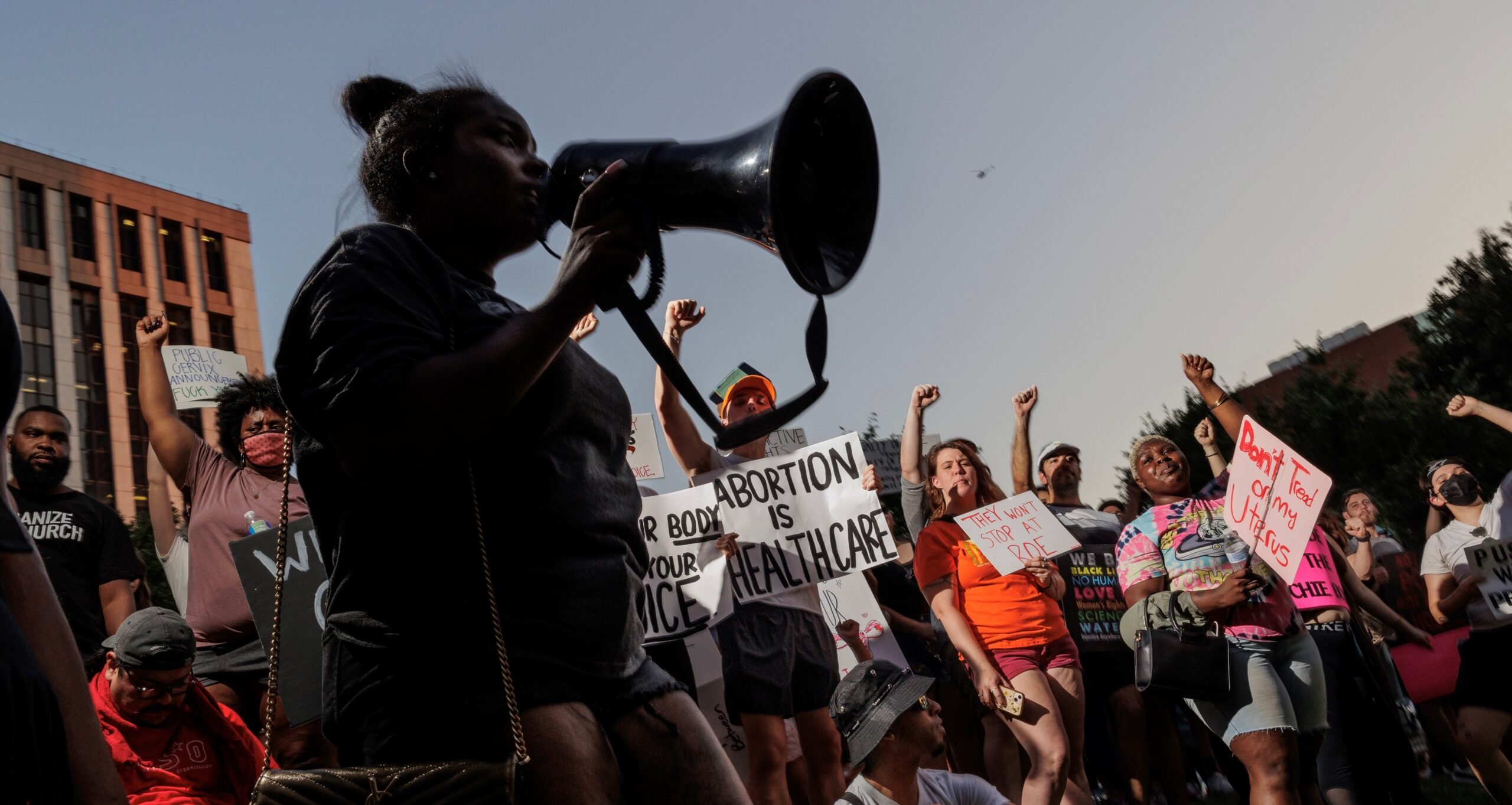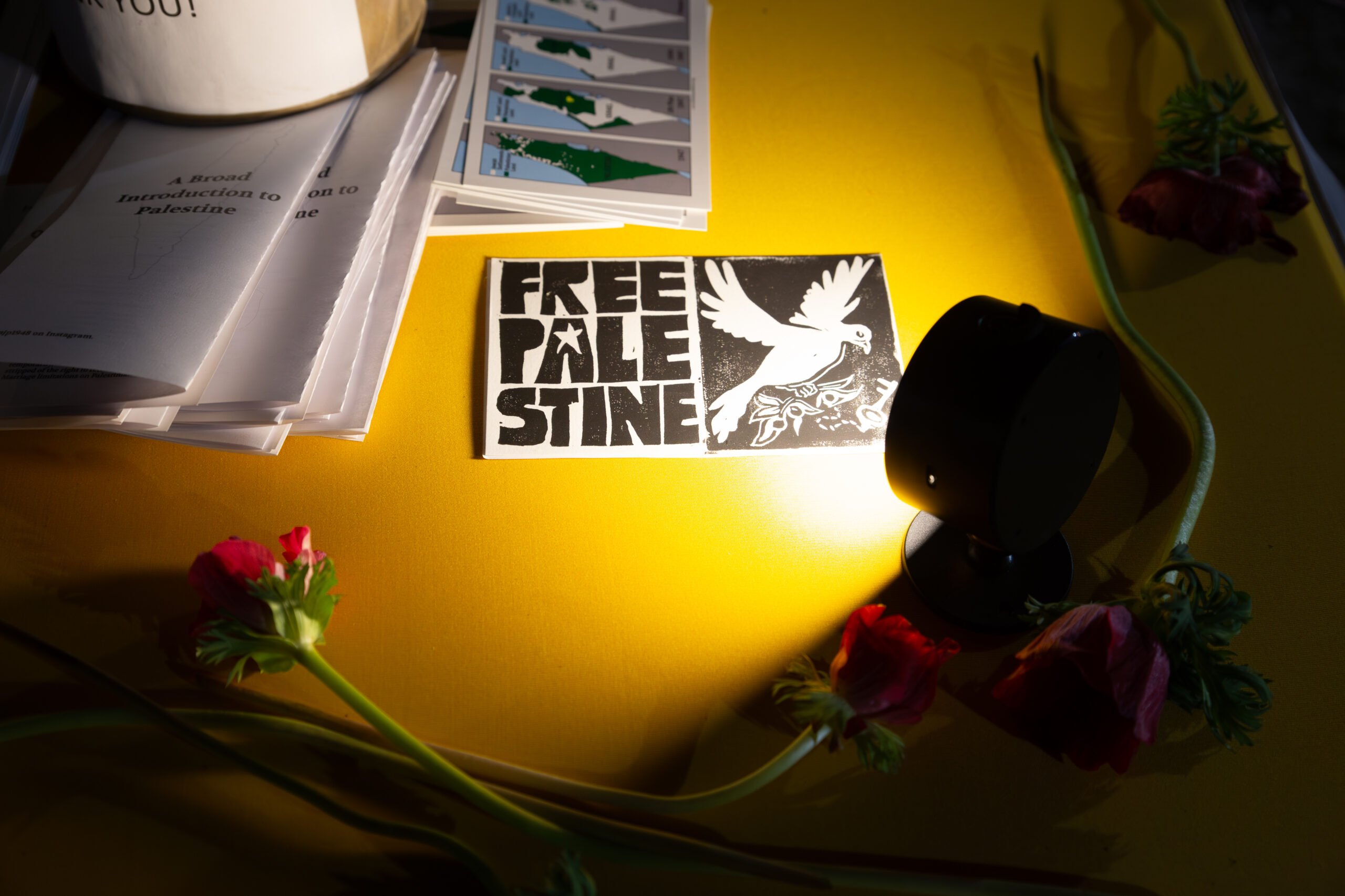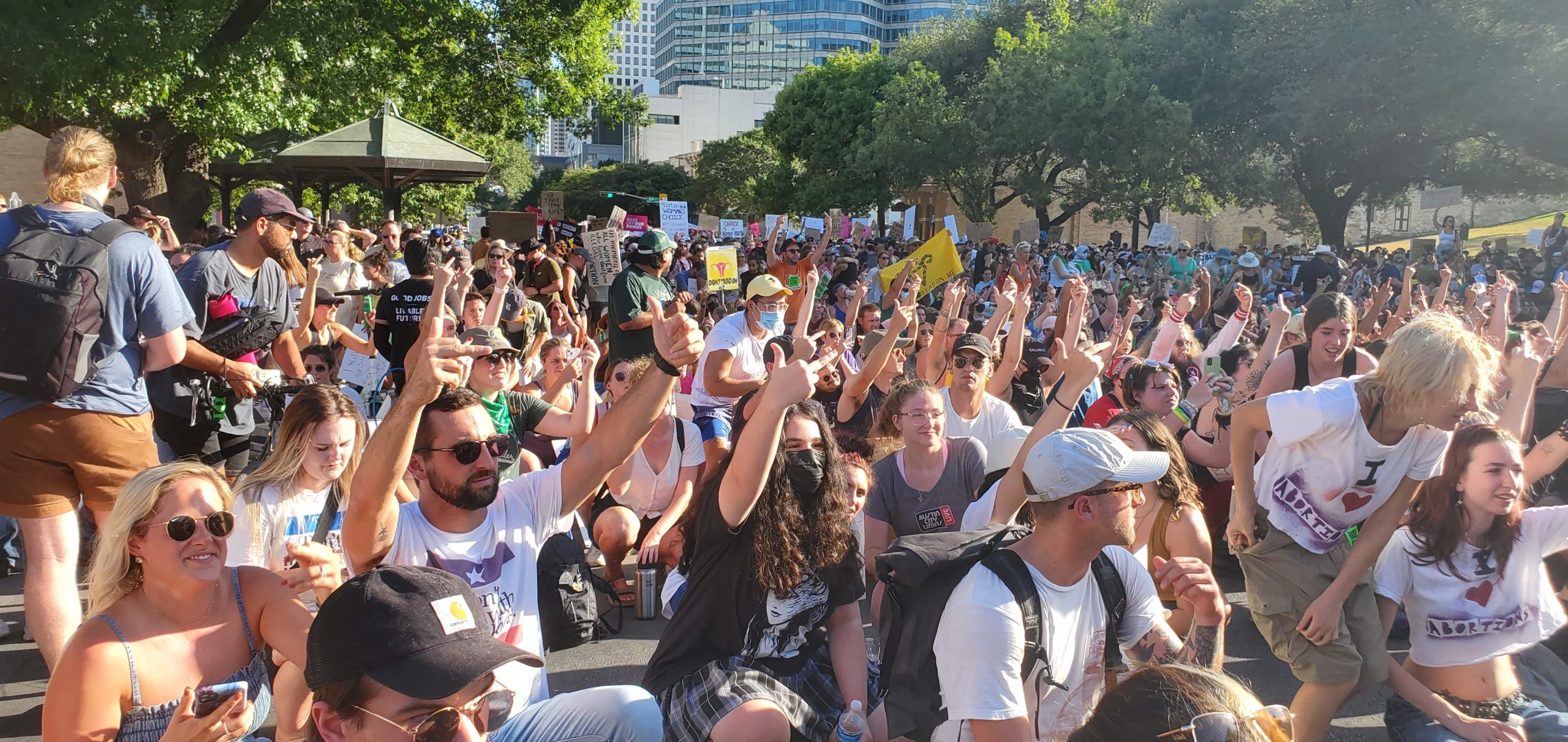
Arresting Development
A settlement for my illegal arrest at the 2004 Republican National Convention means the case is finished—but it doesn't feel like closure.

A version of this story ran in the February 2015 issue.
In August 2004, I went to New York City to protest the Republican National Convention. I’d wanted to go as a journalist, but no publication was interested in paying a fresh-out-of-college newbie with a handful of clips. In any case, I was an activist and I believed—as do many young people, naively and blessedly—that change could come from the sustained application of raw people power. It was just a matter of mobilizing enough voices with enough energy for enough time. In other words, I was kind of a hippie. I’m still a believer, but my democratic faith has been tempered by a decade of watching Texas descend into a mean-spirited pissing contest between right and far right, in the face of which one teeters between tears and laughter.
On campus, I’d thrown myself with almost reckless zeal into organizing against the wars in Iraq and Afghanistan. We organized god knows how many teach-ins, die-ins, rallies and public forums. The high-water mark was a campus-wide walk-out in February 2003. Thousands of students left their classes and gathered on UT’s East Mall at noon. We spontaneously decided to march around campus and then proceed to an interminably long rally on the steps in front of The Tower. Two days later, Hans Blix told the U.N. Security Council that no weapons of mass destruction had been found. A month after the rally, I was sitting in a dining room in the student union watching the Iraq invasion on television.
What’s the point of protesting, some of my friends wondered. I didn’t have an answer.
Yet there I was in New York a year and a half later. This was after Mission Accomplished, after Abu Ghraib, long after it was apparent there were no WMDs in Iraq. Hadn’t we, the anti-war protesters, been proven right? Half the country didn’t seem to think so, still stuck in a post-9/11 boot-and-rally mode of almost hedonistic overreaction that the Bush administration was adept at stoking.
What’s the point of protesting, some of my friends wondered. I didn’t have an answer.
Almost a decade later, a federal judge agreed, ruling that those New York City arrests were illegal. Last year, the city finally agreed to an $18 million settlement with the arrested protesters. Last month, I received my part: a check for $1,000. I haven’t cashed it yet because I don’t know what to do with the money. Part of me wants to donate it to a police accountability project or a civil liberties group. Another part of me wants to blow it all on a trip to Mexico.
Legally, the case is closed, but this check doesn’t feel like closure. Today there is no anti-war movement in the U.S. to speak of, and other promising social movements—Occupy, Ferguson—have been throttled by police power. Which makes protesting seem futile. And that’s what they want, right?


